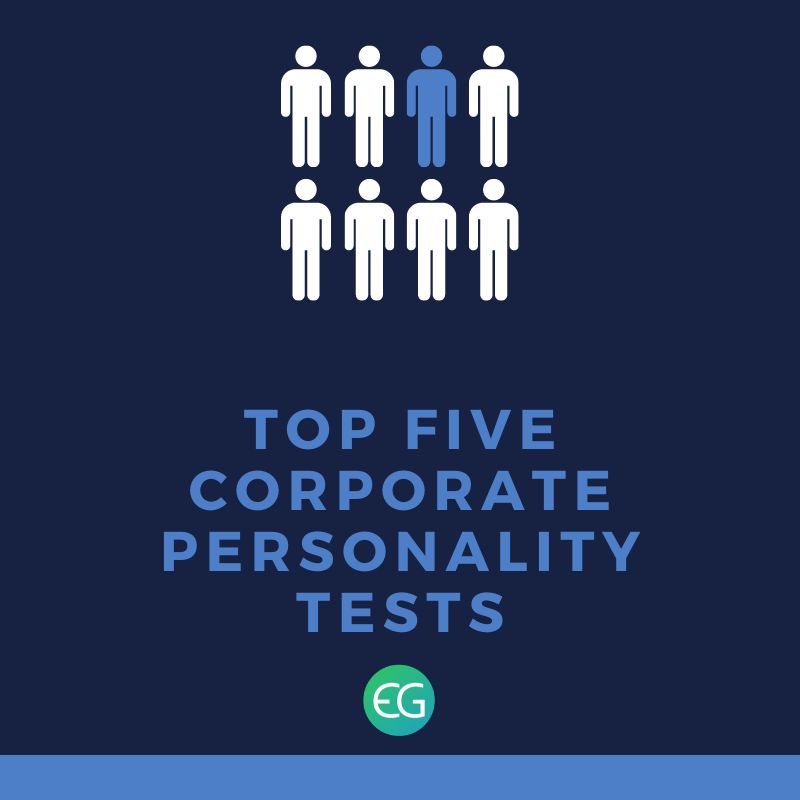
Corporate personality tests are essential tools used by recruiters to evaluate candidates’ suitability for a position within a company. These tests delve deeper than what’s written on a resume, providing insights into candidates’ personalities, work styles, and potential fit within the company culture. While qualifications and experience are crucial, corporate personality tests offer a more holistic view of candidates’ suitability for the role.
Recruiters often rely on carefully tailored processes, including personality tests, to identify candidates who align with the company’s values and objectives. These tests help recruiters assess candidates’ adaptability, initiative-taking abilities, and their capacity to thrive in various professional and social settings. By incorporating personality tests into their recruitment strategies, companies aim to ensure that the selected candidates will contribute positively to the organization’s success.
One widely used corporate personality test is the Myers-Briggs Indicators, developed by Katherine Cook Briggs and Isabel Briggs Myers. This scientifically-backed test categorizes candidates based on four pairs of dichotomies, providing recruiters with valuable insights into candidates’ perceptions and behaviors. Similarly, the Caliper Profile, Employee Personality Profile (EPP), DISC assessment, and Sixteen Personality Factor Questionnaire are among the popular corporate personality tests employed by recruiters to assess candidates’ personality traits and potential fit for the organization.
As recruitment processes become more streamlined, corporate personality tests play a crucial role in identifying candidates who not only possess the requisite skills but also align with the company’s culture and values. These tests provide recruiters with objective data to make informed hiring decisions, ultimately contributing to the long-term success and stability of the organization.
Here are five personality tests that recruiters can use.
Myers-Briggs Indicators
This self-introspective test was created by a mother-daughter duo, Katherine Cook Briggs, and Isabel Briggs Myers, and is based on Carl Jung’s classification of personalities. It is scientifically backed and has set the bar for psychological assessments of personality. The test aims to classify the candidates according to four pairs of dichotomies – sensing or intuition, feeling or thinking, introversion or extroversion and judging or perceiving. This helps recruiters understand the way in which candidates perceive what’s around them. The test results make recruiters aware of the candidate’s shortcomings and strengths. Self-actualization is an indispensable part of learning which is the main reason recruiters incorporate this personality test. Over 70% of the Fortune 500 Companies use the Myers-Briggs Test.
The Caliper Profile
Used by thousands of businesses worldwide, the Caliper Profile is the psychological assessment quiz that has been structured by the talent management company, Caliper. With over 150 questions and two hours of writing time, employers have a more comprehensive personality profile of their applicants. The profile is a scientific instrument that provides concrete results on a candidate’s potential to grow, motivators, and natural strengths. Created nearly half-century ago, the caliper profile analyzes more than 25 personality traits relating to job performance thereby providing conclusive results that examine both the positives and the negatives of the candidate objectively.
Employee Personality Profile
The Employee Personality Profile or EPP is used for gauging a candidate’s personality for any position, on the basis of how well they interact with various elements of the workplace ( colleagues, clients, management etc) as well as their work style. The test is essentially an inventory that measures twelve personality traits of the candidates which are Assertiveness, Achievement, Competitiveness, Conscientiousness, Self-Confidence, Managerial, Extroversion, Motivation, Cooperativeness, Openness, Stress Tolerance, and Patience. It takes 15 minutes to complete the test, which consists of 140 items. The EPP test results have been compared with the 16 Personality Factor Questionnaire proving its construct validity.
DISC
The DISC assessment is a tool that is used to analyze behavior on the basis of a theory proposed by William Moulton Marston. Walter Clarke took this theory and developed the first DISC assessment which identifies four different behavior traits namely dominance (D), inducement (I), submission (S), and compliance (C). The results generated by this personality test help to better understand the temperament and interpersonal relations of the candidates. The test scores participants in all the behavior categories which provide the recruiters with a comprehensive profile of the same. DISC assessments provide outcomes that maker hiring efforts more foolproof and beneficial in the long run.
Sixteen Personality Factor Questionnaire
The Sixteen Personality Factor or 16PF is a personality inventory developed by Raymond B Cattell. Supported by intensive empirical research this test identifies 16 normal ranged personalities used commonly by companies as well as academicians. With personalities ranging from warmth to sensitivity, the test consists of around 170 questions that gauge the candidate’s potential in a professional set up. The test contains situational questions that examine candidates on their ability to make decisions in the workplace.
This content was brought to you by Evalground Online Testing Platform. Evalground is an online assessment and test evaluation system focused on helping Recruiters in the initial screening of potential candidates from an ocean of job seekers in an automated way.Evalground supports Online Aptitude Tests, Spoken English Communication Skills Assessments, Coding Contests in JAVA, C, C++, Ruby, Python, JavaScript and PHP. Evalground also supports Automated asynchronous interviews. Evalground Screening Tests can be used by Recruiters during campus hiring or to screen walk-in candidates.
